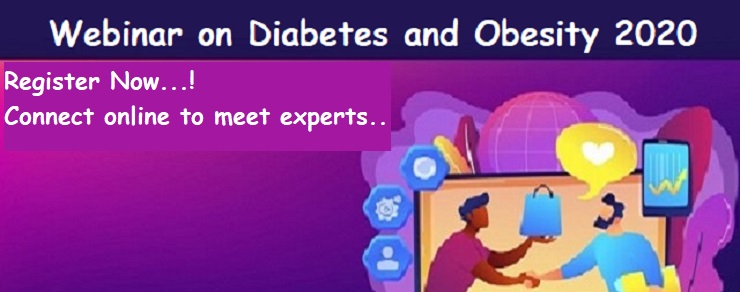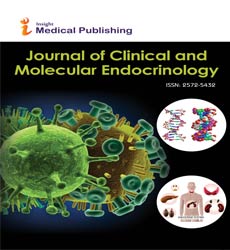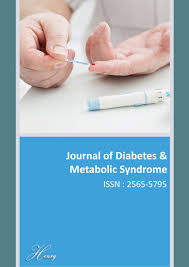Theme: COVID-19: Risk and Management in Diabetes and Obesity
Diabetes and Obesity 2020
Conference Series LLC LTD welcomes you to attend the Annual Congress on Diabetes, Metabolism and Obesity, Webinar during July 20-21, 2020. This is a top-notch opportunity for the delegates from Universities and Institutes to interact with the arena class Scientists. The main theme of the conference is “COVID-19: Risk and Management in Diabetes and Obesity”. Participants to Diabetes & Obesity 2020, besides updating and discuss new trends in “Diabetes & Obesity”, have a unique opportunity to generate international research networks.
Diabetes & Obesity 2020 will be a global platform for sharing information and ability from both scientific and industrial group, online. The meeting goes for uniting the Diabetic academicians, scientists, instructors, Diabetic practitioners, business pioneers, investors and young researchers to a global stage where they can showcase their novel research and contributions in the field of Diabetes and Obesity.
We are sure Diabetes & Obesity 2020 will be an incredible open door for the global group to trade thoughts and add to a typical vision for future research and prompts collaboration among researchers taking an interest.
Why to attend?
Diabetes & Obesity 2020 highlights the theme “COVID-19: Risk and Management in Diabetes and Obesity” Which emphasis on the latest advancements in prevention and treatment cure of various metabolic diseases which may be due to diabetic and endocrine complications and provides robust discussions on methods and strategies related to diagnosis, prevention and management of metabolic disorders as well as explore new ideas and concepts for treatment of Endocrine Complications.
Target Audience:
- Endocrinologists
- Diabetologists
- Researchers
- Practitioners/Doctors
- Podiatrist
- Dietitian
- Eye Doctors
- Nephrologists
- Physical trainer or Exercise physiologist
- Scientists
- Health care experts
- Cardiologists
- Nephrologists
- Nutritionists/Dieticians
- Diabetes Health Professionals
- Physicians
- Nurse practitioners
- Health care analysts
- Academic researchers
- Professors
- Students
- Research Institutes
- Business delegates
- Young Researchers
- Advertising and Promotion Agency Executives
- Professionals in media sector
- Medical colleges
- Diabetes Societies & Associations
- Obesity Societies & Associations
- Heart Societies & Associations
- Medical & Pharmaceutical Companies
- Medical devices & companies
- Others
Track 1: Diabetes Mellitus
Diabetes mellitus is a ceaseless, long-lasting condition that influences your body's capacity to utilize the vitality found in nourishment. There is three noteworthy diabetes are of three sorts they are type 1 diabetes, type 2 diabetes, and gestational diabetes. A wide range of diabetes mellitus has something in like manner. Ordinarily, your body separates the sugars and starches you eat into a unique sugar called glucose. Glucose fills the cells in your body. Be that as it may, the cells require insulin, a hormone, in your circulation system keeping in mind the end goal to take in the glucose and utilize it for vitality. With diabetes mellitus, either your body doesn't make enough insulin, it can't utilize the insulin it produces or a blend of both.
- Pediatric diabetes
- Gestational diabetes
- Emerging focus on diabetes research
- Diabetes education and its risk factors
- Diabetes symptom
- Risk of COVID-19 associated with Diabetes
Related Conferences:
Endocrinology Conferences| Endocrinology conferences 2019| Neuroendocrinology Conferences| Diabetes conferences| International diabetes conferences| International endocrinology conferences| Endocrine conference| Metabolism conference| Metabolic syndrome conference| Diabetes and Metabolism conference| Metabolic disease conferences| Endocrinology and Metabolism conferences| Metabolic disorder| Diabetes and Endocrinology Conferences| International Endocrinology Conferences| Global Endocrinology Conferences | Diabetes Webinars 2020 | Diabetes Conferences 2020 | Diabetes Podcast | Diabetes Congress | Philippines | Asia-Pacific | USA | Middle East | Obesity Webinars 2020
Track 2: Obesity
Obesity is where a man has collected so much muscle versus fat that it may negatively affect their well-being. In the event that a man's body weight is no less than 20% higher than it ought to be, he or she is viewed as corpulent. On the off chance that your Body Mass Index (BMI) is in the vicinity of 25 and 29.9, you are viewed as overweight. On the off chance that your BMI is 30 or over you are viewed as fat.
- Endocrinal and hormonal obesity
- Causes and consequences
- Childhood obesity
- Obesity during Pregnancy
- Control of obesity
- Weight management
- Advanced treatment for obesity
Related Conferences:
Endocrinology conferences 2019| Neuroendocrinology Conferences| Diabetes conferences| International diabetes conferences| International endocrinology conferences| Endocrine conference| Metabolism conference| Metabolic syndrome conference| Diabetes and Metabolism conference| Metabolic disease conferences| Endocrinology and Metabolism conferences| Metabolic disorder| Diabetes and Endocrinology Conferences| International Endocrinology Conferences| Global Endocrinology Conferences | Diabetes Webinars 2020 | Diabetes Conferences 2020 | Diabetes Podcast | Diabetes Congress | Philippines | Asia-Pacific | USA | Middle East | Obesity Webinars 2020
Track 3: Human Metabolism
Digestion is characterized by the arrangement of life-managing substance changes inside the cells of living creatures. These compounds catalyzed responses enable life forms to develop and imitate, keep up their structures, and react to their surroundings. The word digestion can likewise allude to every single concoction response that happens in living beings, including assimilation and the vehicle of substances into and between various cells, in which case the arrangement of responses inside the phones is called middle person digestion or moderate digestion. The term, 'Digestion,' alludes to the whole scope of biochemical procedures that occur inside a man or living creature. Digestion is something that comprises both,' Catabolism,' and, 'Anabolism;' which are the development and breakdown of substances. Digestion is a term used to allude especially to the breakdown of nourishment and its ensuing change into vitality the individual's body needs. In the field of Biology, Metabolism alludes to the majority of the body's substance forms, the assimilation of sustenance, and the disposal of waste.
- Carbon fixation
- Folic acid metabolism and human embryopathy
- Nutrient utilization in humans
- Metabolism Pathways
- Energy metabolism
- Oxidative Phosphorylation: mechanism of ATP synthesis
- Metabolic pathway
Related Conferences:
Diabetes conferences| International diabetes conferences| International endocrinology conferences| Endocrine conference| Endocrinology Conferences| Endocrinology conferences 2019| Neuroendocrinology Conferences| Metabolism conference| Metabolic syndrome conference| Diabetes and Metabolism conference| Metabolic disease conferences| Endocrinology and Metabolism conferences| Metabolic disorder| Diabetes and Endocrinology Conferences| International Endocrinology Conferences| Global Endocrinology Conferences | Diabetes Webinars 2020 | Diabetes Conferences 2020 | Diabetes Podcast | Diabetes Congress | Philippines | Asia-Pacific | USA | Middle East | Obesity Webinars 2020
Track 4: Genetics of Obesity
Obesity is an aftereffect of abundance muscle to fat ratio collection. This overabundance is related to unfavorable wellbeing impacts, for example, CVD, type 2 diabetes, and growth. The improvement of weight has an apparent natural commitment, yet as appeared by heritability appraisals of 40% to 70%, a hereditary vulnerability segment is additionally required. Advance in understanding the etiology has been moderate, with discoveries to a great extent confined to monogenic, serious types of stoutness. Be that as it may, innovative and expository advances have empowered location of more than 20 weight weakness loci. These contain qualities proposed to be associated with the direction of nourishment allow through activity in the focal sensory system and in addition to adipocyte work. These outcomes give conceivable organic pathways that may, later on, be focused as a feature of treatment or counteractive action techniques. Despite the fact that the extent of heritability clarified by these qualities is little, their recognition proclaims another stage in understanding the etiology of normal corpulence.
Related Conferences:
Diabetes conferences| International diabetes conferences| International endocrinology conferences| Endocrine conference| Endocrinology Conferences| Endocrinology conferences 2019| Neuroendocrinology Conferences| Metabolism conference| Metabolic syndrome conference| Diabetes and Metabolism conference| Metabolic disease conferences| Endocrinology and Metabolism conferences| Metabolic disorder| Diabetes and Endocrinology Conferences| International Endocrinology Conferences| Global Endocrinology Conferences | Diabetes Webinars 2020 | Diabetes Conferences 2020 | Diabetes Podcast | Diabetes Congress | Philippines | Asia-Pacific | USA | Middle East | Obesity Webinars 2020
Track 5: Obesity Health Effects
Venture out dealing with your weight from the solace of your home. Utilize our BMI adding a machine to enable you to decide if you are viewed as stout. In the event that you are hefty, or have at least one hazard factors for weight, our doctors can help. In instances of serious stoutness, surgery is probably a preference. Fat prompts case High circulatory strain, Diabetes, Heart sickness, Joint issues, Cancer, Metabolic disorder, Psychosocial impacts, Sleep apnea and respiratory issues. These are some rescuer medical issues caused by obesity.
- Glucose intolerance
- High blood pressure
- Type 2 diabetes
- Cholesterol
- Coronary heart disease
- Cancer
- Stroke
- Gallbladder disease
- Low quality of life
- Retinopathy
Related Conferences:
Endocrinology conferences 2019| Neuroendocrinology Conferences| Diabetes conferences| International diabetes conferences| International endocrinology conferences| Endocrine conference| Metabolism conference| Metabolic syndrome conference| Diabetes and Metabolism conference| Metabolic disease conferences| Endocrinology and Metabolism conferences| Metabolic disorder| Diabetes and Endocrinology Conferences| International Endocrinology Conferences| Global Endocrinology Conferences
Track 6: Advanced Technologies & Treatments for Diabetes
The Artificial Pancreas Device System is an arrangement of gadgets that nearly emulates the glucose directing capacity of a sound pancreas. Most Artificial Pancreas Device Systems contains 3 varieties of devices effectively secure to several individuals with diabetes: a regular glucose checking framework (CGM) and an insulin aggregate pump. A blood glucose gadget, (for example, a glucose meter) is utilized to align the CGM. A PC controlled calculation associates the CGM and insulin imbuement pump to permit consistent correspondence between the two gadgets. Infrequently a simulated pancreas gadget framework is alluded to as a "shut circle" framework, a "mechanized insulin conveyance" framework, or a "self-governing framework for glycemic control. "An Artificial Pancreas Device System won't just screens glucose levels in the body yet additionally naturally alters the conveyance of insulin to lessen high blood glucose levels (hyperglycemia) and limit the frequency of low blood glucose (hypoglycemia) with practically zero contribution from the patient.
- Integrative gaming
- Artificial pancreas
- Insulin
- CGM
Related Conferences:
Endocrinology Conferences| Endocrinology conferences 2019| Neuroendocrinology Conferences| Diabetes conferences| International diabetes conferences| International endocrinology conferences| Endocrine conference| Metabolism conference| Metabolic syndrome conference| Diabetes and Metabolism conference| Metabolic disease conferences| Endocrinology and Metabolism conferences| Metabolic disorder| Diabetes and Endocrinology Conferences| International Endocrinology Conferences| Global Endocrinology Conferences
Track 7: Advanced Treatments for Obesity
Success authorities like dieticians, guide direct or cumbersomeness energy to acknowledge and take off upgrades in eating and movement affinities. All weight programs require changes in nutritional problems and multiplied the physical movement. The treatment frameworks that are correct relies upon the interminable supply of largeness, general thriving, and the ability of a person to comprehend weight reducing geniuses. Heftiness Congress accumulates an instructive and intuitive consultation in the field of Obesity, Bariatric Surgery, and Endocrinology.
- Combination therapy for the treatment of obesity
- Surgical and non-surgical liposuction
- Morbid obesity treatment
- Weight loss using kinesiology
- Advanced inch loss therapy
- Sympathomimetic drugs
- Islet cell transplantation
- Medications for obesity
- Bariatric surgery
- Natural treatments for obesity
- Depression management and abuse recovery
- Dietary treatment for obesity
Related Conferences:
Diabetes conferences| International diabetes conferences| International endocrinology conferences| Endocrine conference| Endocrinology Conferences| Endocrinology conferences 2019| Neuroendocrinology Conferences| Metabolism conference| Metabolic syndrome conference| Diabetes and Metabolism conference| Metabolic disease conferences| Endocrinology and Metabolism conferences| Metabolic disorder| Diabetes and Endocrinology Conferences| International Endocrinology Conferences| Global Endocrinology Conferences
Track 8: Metabolism Syndrome Treatments
A metabolic disorder is a group of chance factors that include stomach fats, high blood pressure, high glucose, and unlucky levels of cholesterol. Treatment is centered around handling each of these conditions. The objective is to cut your chances of vein ailment and coronary illness, and additionally diabetes. By and huge, the best treatment for metabolic disease rests with you. Changes to your conduct -, for example, eating more advantageous and getting more exercise - are the main things your specialist will recommend. By receiving some solid propensities, you might have the capacity to wipe out your hazard factors totally.
- Self-care
- Physical exercise
- Primary care Provider (PCP)
- Anti-diabetic medication
- Cardiologist
- Nutritionist
Related Conferences:
Metabolism conference| Metabolic syndrome conference| Diabetes and Metabolism conference| Metabolic disease conferences| Endocrinology and Metabolism conferences| Metabolic disorder| Diabetes and Endocrinology Conferences| International Endocrinology Conferences| Global Endocrinology Conferences| Endocrinology Conferences| Endocrinology conferences 2019| Neuroendocrinology Conferences| Diabetes conferences| International diabetes conferences| International endocrinology conferences| Endocrine conference
Track 9: Diet for Diabetes
The best food for diabetes is frequently entire nourishments that are not prepared, for example, foods grown from the ground. Counting these additional solid power nourishments in your eating regimen will enable you to meet your nutritious needs and also bring down your danger of diabetes entanglements, for example, coronary illness. Obviously, the food on this rundown shouldn't be the main nourishments you eat yet consolidating a few or all into your diabetes feast design will help enhance your general wellbeing.
- Low-carbohydrate diet
- Low-fat diet
- Very-low-calorie diet
- DASH diet
Related Conferences:
Diabetes conferences| International diabetes conferences| International endocrinology conferences| Endocrine conference| Endocrinology Conferences| Endocrinology conferences 2019| Neuroendocrinology Conferences| Metabolism conference| Metabolic syndrome conference| Diabetes and Metabolism conference| Metabolic disease conferences| Endocrinology and Metabolism conferences| Metabolic disorder| Diabetes and Endocrinology Conferences| International Endocrinology Conferences| Global Endocrinology Conferences
Track 10: Control of Obesity
Administration of obesity can incorporate a way of life changes, solutions, or surgery. The fundamental treatment for heftiness comprises eating fewer carbs and physical exercise. Eating regimen projects may deliver weight reduction over the here and now, however keeping up this weight reduction is as often as possible troublesome and regularly requires influencing exercise and a lower calorie to slim down a lasting piece of a person's way of life. Achievement rates of long-haul weight reduction upkeep with the way of life changes are low, running from 2 to 20%. Dietary and way of life changes are compelling in restricting the top weight pick up in pregnancy and enhance results for both the mother and the kid. The National Institutes of Health suggest a weight reduction objective of 5% to 10% of the individual's present weight more than a half year.
- Obesity and adipose tissue biology
- Weight-loss programs
- Statistical analysis
- Oxidative stress and Platelet activation in obesity
- Biomarkers for assessing obesity
Related Conferences:
Diabetes conferences| International diabetes conferences| International endocrinology conferences| Endocrine conference| Endocrinology Conferences| Endocrinology conferences 2019| Neuroendocrinology Conferences| Metabolism conference| Metabolic syndrome conference| Diabetes and Metabolism conference| Metabolic disease conferences| Endocrinology and Metabolism conferences| Metabolic disorder| Diabetes and Endocrinology Conferences| International Endocrinology Conferences| Global Endocrinology Conferences
Track 11: Role of Anesthesiologists in obesity
On the off chance that you are overweight, you may likewise have therapeutic conditions that are caused or exacerbated by the additional weight, and they can build your hazard amid surgery. For instance, your circulatory strain might be higher than typical. You may have diabetes or GERD (gastroesophageal reflux illness). Regardless of whether you don't have any of these conditions, being fundamentally overweight can prompt difficulties with various anesthesia-related procedures:
- Locating veins to convey anesthesia and life-sparing crisis drugs intravenously
- Determining the correct measurement of prescriptions
- Ensuring you get enough oxygen and wind currents, particularly on the off chance that you have rest apnea
- Adding to the time it takes to recapture awareness after surgery and your recuperation time
- Increasing the danger of breathing issues with opiates and other torment pharmaceuticals
- Placing a breathing tube
- Adjustable gastric band (AGB) by Laparoscopy
- Liposuction
- Bariatric surgery
Related Conferences:
Diabetes conferences| International diabetes conferences| International endocrinology conferences| Endocrine conference| Endocrinology Conferences| Endocrinology conferences 2019| Neuroendocrinology Conferences| Metabolism conference| Metabolic syndrome conference| Diabetes and Metabolism conference| Metabolic disease conferences| Endocrinology and Metabolism conferences| Metabolic disorder| Diabetes and Endocrinology Conferences| International Endocrinology Conferences| Global Endocrinology Conferences
Track 12: Diet and Nutrition
A low-calorie diet (VLCD) is an eating regimen that includes devouring not as much as containing under 3350 kilojoules (800 calories) every day. While a Very Low-Calorie Diet (VLCD) can be a successful strategy for getting in shape for some fat individuals, is it not a reasonable or safe technique for everybody. It would generally just be suggested if quick weight reduction was required to decrease the danger of a corpulence related entanglement, for example, coronary illness, or on the off chance that you have neglected to get more fit in spite of regular treatment. You should just ever embrace a VLCD under the supervision of reasonably qualified wellbeing proficient.
- Low-density lipoproteins
- Calorie restriction
- Low-fat diet
- Very-low-calorie diet
- Fat burning foods
- Atkins diet for obese persons
- Consuming fresh fruits & vegetables
- Dietary approaches for weight loss
- Diet & weight management
- Vitamins for weight loss
Related Conferences:
Diabetes conferences| International diabetes conferences| International endocrinology conferences| Endocrine conference| Endocrinology Conferences| Endocrinology conferences 2019| Neuroendocrinology Conferences| Metabolism conference| Metabolic syndrome conference| Diabetes and Metabolism conference| Metabolic disease conferences| Endocrinology and Metabolism conferences| Metabolic disorder| Diabetes and Endocrinology Conferences| International Endocrinology Conferences| Global Endocrinology Conferences
Track 13: Childhood Obesity
Childhood obesity is a genuine therapeutic condition that influences youngsters and teenagers. Kids who are fat are over the typical weight for their age and tallness. Youth heftiness is especially upsetting in light of the fact that the additional pounds regularly begin youngsters on the way to medical issues that were once viewed as grown-up issues — diabetes, hypertension, and elevated cholesterol. Numerous hefty kids wind up fat grown-ups, particularly on the off chance that one or the two guardians are fat. Youth heftiness can likewise prompt poor confidence and sorrow. A standout amongst other procedures to decrease youth stoutness is to enhance the eating and exercise propensities for your whole family. Treating and averting youth corpulence secures your kid's wellbeing now and later on.
- Type 1 diabetes
- Childhood Cancer
- Childhood heart disease
- Higher Levels of Depression
Related Conferences:
Diabetes conferences| International diabetes conferences| International endocrinology conferences| Endocrine conference| Endocrinology Conferences| Endocrinology conferences 2019| Neuroendocrinology Conferences| Metabolism conference| Metabolic syndrome conference| Diabetes and Metabolism conference| Metabolic disease conferences| Endocrinology and Metabolism conferences| Metabolic disorder| Diabetes and Endocrinology Conferences| International Endocrinology Conferences| Global Endocrinology Conferences
Track 14: Nutrition and Food Healthcare
The successful administration of food consumption and nutrition are both keys to great wellbeing. Shrewd sustenance and nourishment decisions can help forestall infection. Eating the correct nourishments can enable your body to adapt all the more effectively to a progressing sickness. Seeing great sustenance and focusing on what you eat can enable you to keep up or enhance your wellbeing.
- Healthy food
- Advantage of Breakfast
- Food Preservation and Safety
- Conditions Influenced by Nutrition
Related Conferences:
Diabetes conferences| International diabetes conferences| International endocrinology conferences| Endocrine conference| Endocrinology Conferences| Endocrinology conferences 2019| Neuroendocrinology Conferences| Metabolism conference| Metabolic syndrome conference| Diabetes and Metabolism conference| Metabolic disease conferences| Endocrinology and Metabolism conferences| Metabolic disorder| Diabetes and Endocrinology Conferences| International Endocrinology Conferences| Global Endocrinology Conferences
Track 15: Diabetes Research
A wide range of research going on in the field of cure, prevention, and management of Diabetes. Researchers are trying to develop new therapies and drugs which should not create any side effects to the patients after administering. Recent researches are opening the help door for patients having the rare forms of Diabetes for instance Diabetes which is caused by single gene mutations is known as “monogenic” form of diabetes. I recent research field there are different innovations such as insulin patches that imitate the body’s beta cells by sensing blood glucose level and releasing insulin. Many more kinds of research are going on rapidly in the field of Diabetes i.e. Diabetes – depression connection, very low effort muscular activity and Diabetes threat and cardio exercising enhance mind characteristic for people with pre-diabetes.
- Drug Development Opportunities in Diabetes research
- Methods to control or prevent diabetes in obese people
- Diabetes and Epigenetics
- Diabetes and Parkinson
- Bioinformatics tools and techniques used in diabetes research
- Emerging technologies in diabetes research
- Albuminuria
Related Conferences:
Diabetes conferences| International diabetes conferences| International endocrinology conferences| Endocrine conference| Endocrinology Conferences| Endocrinology conferences 2019| Neuroendocrinology Conferences| Metabolism conference| Metabolic syndrome conference| Diabetes and Metabolism conference| Metabolic disease conferences| Endocrinology and Metabolism conferences| Metabolic disorder| Diabetes and Endocrinology Conferences| International Endocrinology Conferences| Global Endocrinology Conferences
Track 16: Diabetic Kidney disease or Diabetic Nephropathy
Diabetic Nephropathy is a condition mainly caused due to diabetes affecting the kidneys. Sometimes, it may also lead to kidney or renal failure. The waste from the blood is eliminated by the blood vessels present in the kidney, which can also be destroyed by high blood sugar levels. The body usually retains excess water and salts leading to improper weight gain and swelling of ankle which may in turn leads to kidney or renal failure. In the earlier stages, no symptoms are seen. But the regular urine tests are required to detect the damage.
The high blood sugar levels may also lead in the damage of nerves, which in turn lead to difficulty in emptying of the urinary bladder. The long-term retention of urine in the urinary bladder causes infectious bacterial growth with high blood sugar levels.
Related Conferences:
Diabetes conferences| International diabetes conferences| International endocrinology conferences| Endocrine conference| Endocrinology Conferences| Endocrinology conferences 2019| Neuroendocrinology Conferences| Metabolism conference| Metabolic syndrome conference| Diabetes and Metabolism conference| Metabolic disease conferences| Endocrinology and Metabolism conferences| Metabolic disorder| Diabetes and Endocrinology Conferences| International Endocrinology Conferences| Global Endocrinology Conferences
Track 17: Diabetic Eye disease or Diabetic Retinopathy
Diabetic retinopathy is caused because of injury to the blood vessels within the tissue of tissue of retina. Poor management of glucose is one of the risk factors. The blood vessels might swell and leak fluid and abnormal development of new blood vessels on the surface of the tissue layer is seen. The related connective tissue may contract and detach from retina. Symptoms in initial stages embrace floaters, blurriness, dark areas of vision and difficulty in detecting colors. There is no cure for diabetic retinopathy however will be treated optical laser treatments and surgical removal of vitreous gel (vitrectomy) for good vision. There are four stages in diabetic retinopathy which are classified as mild, moderate and severe non-proliferative and proliferative. In the first stage, mild non-proliferative, there will be balloon-like swelling in blood vessels of the retina.
Related Conferences:
Diabetes conferences| International diabetes conferences| International endocrinology conferences| Endocrine conference| Endocrinology Conferences| Endocrinology conferences 2019| Neuroendocrinology Conferences| Metabolism conference| Metabolic syndrome conference| Diabetes and Metabolism conference| Metabolic disease conferences| Endocrinology and Metabolism conferences| Metabolic disorder| Diabetes and Endocrinology Conferences| International Endocrinology Conferences| Global Endocrinology Conferences
Track 18: Diabetic Gastro Paresis
Gastro Paresis is also known as delayed gastric emptying. It is a condition which affects both type 1 and type 2 diabetes patients in which the stomach requires time to empty its contents. If glucose levels are high for a long period of time it may lead to the damage of vagus nerve. The vagus nerve has complete control in the movement of food through the GI tract. If the vagus nerve gets damage or doesn’t work properly, the muscle of the stomach and intestine gets blocked, and the movement of food is slowed or stopped completely.
Signs and symptoms of gastro paresis
- Heartburn
- Feeling of fullness while eating
- Bloating of abdomen
- Weight loss
- Spasmodic stomach.
- Constipation
- Gastro Esophageal reflux.
- Erratic blood glucose levels.
Related Conferences:
Diabetes conferences| International diabetes conferences| International endocrinology conferences| Endocrine conference| Endocrinology Conferences| Endocrinology conferences 2019| Neuroendocrinology Conferences| Metabolism conference| Metabolic syndrome conference| Diabetes and Metabolism conference| Metabolic disease conferences| Endocrinology and Metabolism conferences| Metabolic disorder| Diabetes and Endocrinology Conferences| International Endocrinology Conferences| Global Endocrinology Conferences
Market Analysis of Human Metabolism Conference
Obesity and the related diabetes scourges speak to a genuine concern around the world. Bariatric/metabolic surgery rose in a years ago as a profitable helpful alternative for stoutness and related maladies, including type 2 diabetes mellitus (T2DM). The convoluted system of instruments associated with corpulence and T2DM have not totally characterized yet. There is as yet a level-headed discussion on which would be the primary metabolic deformity prompting metabolic crumbling: insulin protection or hyperinsulinemia? Knowledge into the metabolic impacts of bariatric/metabolic surgery has uncovered that, past weight reduction and nourishment confinement, different instruments can be enacted by the improvements of the gastrointestinal tract, for example, the incretin/hostile to incretin framework, changes in bile corrosive creation and stream, and adjustments of gut miniaturized scale biota; every one of them conceivably associated with the abatement of T2DM. The entire clarification of these systems will prompt a superior comprehension of the pathogenesis of this illness. Our point was to audit a portion of the metabolic instruments engaged in the advancement of T2DM in corpulent patients and additionally in the abatement of this condition in patients submitted to bariatric/metabolic surgery.
Scope and Importance of Human Metabolism Conference
The metabolism refers to the complete set of metabolites present in a biological sample. Metabolites are the products and intermediates of metabolism and are usually restricted to small organic molecules (Mw < 1000). Metabolites are interrelated in a metabolic network, consisting of many different metabolic pathways. The complete set of metabolic pathways is important for maintaining a (healthy) constant stable environment within an organism, so-called homeostasis. Metabolites originate from many different compound classes, e.g. alcohols, aldehydes, amines, amino acids, aromatic compounds, carbohydrates (sugars, sugar-phosphates, sugar-amines, sugar acids, etc.), lipids (fatty acids, mono-, di- and triglycerides, phospholipids, sphingolipids, etc.), nucleosides (purines, pyrimidines), nucleotides and organic acids (carboxylic acids, sulfonic acids, phosphor-organic acids, etc.). The complexity of the full metabolism is dependent on the organism studied, varying from a few hundreds of endogenous metabolites for microorganisms 6,7 to thousands of endogenous human metabolites (The Human Metabolize Database already contains over 6500 distinct metabolites and the number is growing).8 In addition, by estimation hundreds of thousands of small molecules can be expected to be present in humans due to the microbes present in their guts or the administration of food, drugs, etc.
Market Analysis Graph
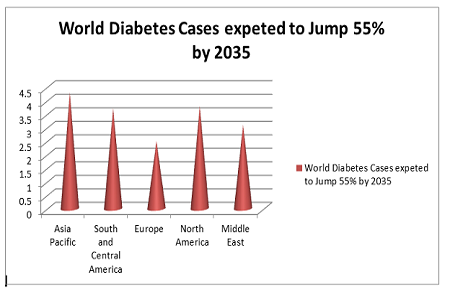
Global obesity prevalence
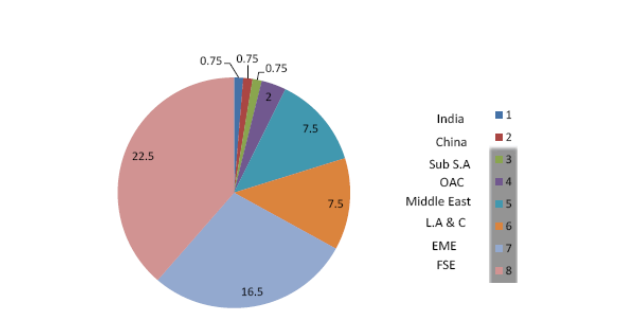
Diagnosed debates receiving treatment with insulin or oral medication in global (2010-2018)
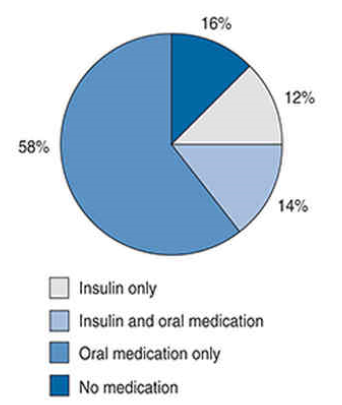
List of societies and association in worldwide
- All India Association for Advancing Research in Obesity
- The Philippine Association for the Study of Overweight and Obesity
- The Egyptian Medical Association for the Study of Obesity (EMASO)
- Hong Kong Association of Study of Obesity (HKASO)
- Diabetic Association of India
- All India Association for Advancing Research in Obesity (AIAARO)
- American Public Health Association
- National Lipid Association
- Malaysian Association for the Study of Obesity (MASO)
- California Medical Association Foundation
- This Stigma of Obesity - Association for Psychological Science
- Association for Physical Activity, Diet, and Obesity Measures
- Obesity - American Beverage Association
- Obesity Management Association (OMA)
- Associations of Physical Activity, Obesity, and Serum Lipids
- Associations of Obesity, Alcohol abuse, and Smoking
- Associations between Short Sleep Duration and Central Obesity
- Dieticians Association of Australia
- Associations between Short Sleep Duration and Central Obesity
- Dieticians Association of Australia
- Association of Parental and Child Overweight and Obesity
- Association of Chronic pain and Obesity
- North American Association for the Study of Obesity Association for Nutrition
- Association of Obesity, Physical Activity, and CancerAssociations of Urban Environment and Obesity
- Association of Perinatal Endocrinology and Metabolism (PEM)
- ICCA Association of Database Endocrinology
- Endocrinology Association of Naturopathic Physicians
- Public Health Association of Australia
- European Neuroendocrine Association
- American Association of Clinical Endocrinologists
- American Obesity Treatment Association
- Obesity Medicine Association
- World Obesity Federation
- Association for the Study of Obesity
- American Medical Association
- All India Association for Advancing Research in Obesity
- Childhood Obesity - American Heart Association
- American Obesity Treatment Association
- Associations of Television Content Type and Obesity in Children
- Social Science of Obesity
- European Association for the Study of Obesity: EASO
- American Obesity Association (AOA) – Obesity
- American Heart Association
- IFSO | Obesity & Bariatric Surgery
- Physical Activity and Obesity Association
- Association for Helicobacter Pylori and Obesity
- Association for Family Income and Children's Physical Fitness
- Obesity Research | Canadian Diabetes Association
- Indian Association of Endocrine Surgeons (IAES)
- European Association for the Study of Obesity (EASO)
- International Association for the Study of Obesity (IASO)
Major Diabetes Research Associations & Societies around Globe:
- International Diabetes Federation
- American Diabetes Association
- Canadian Diabetes Association
- Diabetes New Zealand
- Diabetes United Kingdom
- Diabetes Indian Association
- Diabetes South Africa
- Spanish Diabetes Society (Spain)
- Swedish Diabetes Association
- Australian Diabetes Educators Association
- Australian Diabetes in Pregnancy Society
- Australian Pediatric Endocrine Group
- National Diabetes Services Scheme
- Endocrine Society of Australia
- American Diabetes Association
- European Association for the Study of Diabetes
- Baker IDI Heart & Diabetes Institute
- International Diabetes Federation
- Royal Australian College of Physicians
- Australian Child and Adolescent Obesity Research Network
- Australian & New Zealand Obesity Society
- Juvenile Diabetes Research Foundation International
- World Diabetes Day, Diabetes Conferences
- NHMRC Clinical Practice Guidelines Portal
- New Zealand Society for the Study of Diabetes
- Korean Diabetes Association
Major Universities on Diabetes Research
- Albany Medical College
- Baylor College of Medicine
- Creighton University School of Medicine
- Dartmouth Medical School, Healthcare Conferences
- Florida International University College of Medicine
- Georgetown University School of Medicine
- Howard University College of Medicine 2019
- Harvard Medical School, Diabetes Europe 2019
- Johns Hopkins University School of Medicine Diabetes
- Pennsylvania State University College of Medicine
Conference Highlights
- Diabetes Mellitus
- Obesity
- Human Metabolism
- Genetics of Obesity
- Obesity Health Effects
- Advanced Technologies & Treatments for Diabetes
- Advanced Treatments for Obesity
- Metabolism Syndrome Treatments
- Diet for Diabetes
- Control of Obisety
- Diabetic Gastro Paresis
- Diabetic Eye disease or Diabetic Retinopathy
- Diabetic Kidney disease or Diabetic Nephropathy
To share your views and research, please click here to register for the Conference.
To Collaborate Scientific Professionals around the World
| Conference Date | July 20-21, 2020 | ||
| Sponsors & Exhibitors |
|
||
| Speaker Opportunity Closed | |||
| Poster Opportunity Closed | Click Here to View | ||
Useful Links
Special Issues
All accepted abstracts will be published in respective Our International Journals.
- Journal of Reproductive Endocrinology & Infertility
- Journal of Clinical and Molecular Endocrinology
- Journal of Metabolic Syndrome
Abstracts will be provided with Digital Object Identifier by

